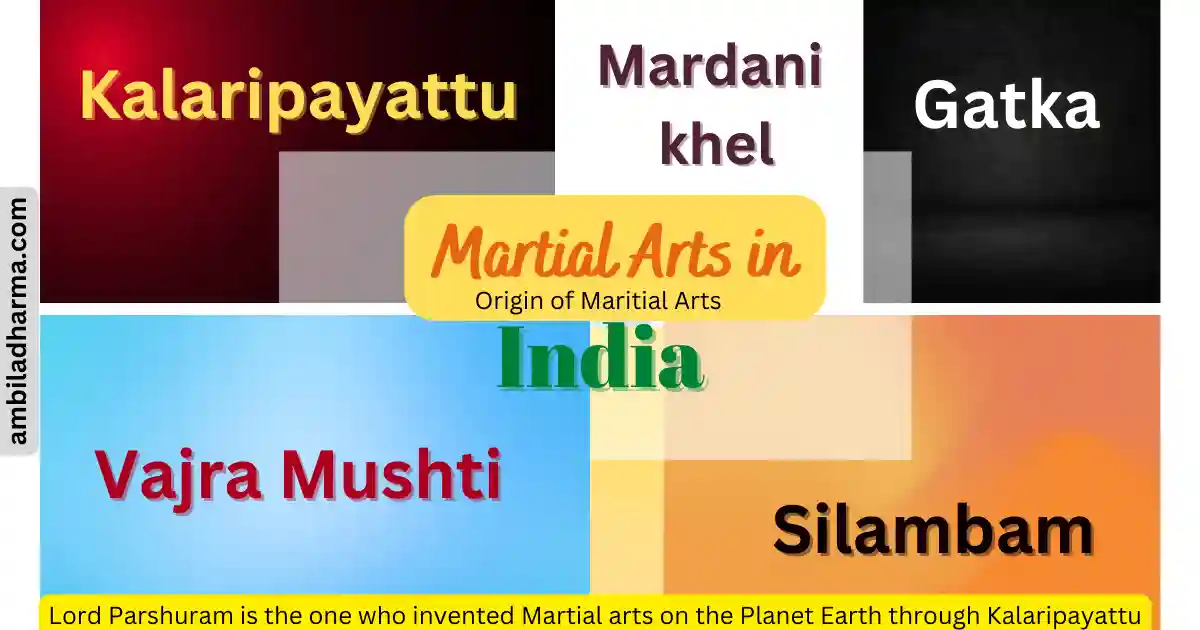- Martial arts invented by – Lord Parshuram
- Origin – India
- state – Kerala (Origin state )
Brief Introduction
Martial arts in India is much older than what we imagine .India is beautifully defined as a country of cultural heritage and Martial arts . We are living in a country where common people of India know thousands of years of ancient knowledge through the lens of western talk . Martial art is one of them .
Believe me or not but many of the Indian residents or outside India know the martial art having its origin in Northern Asia . Karate , Kung Fu ,Wrestling, boxing are the common names through which we know martial arts .
Our great warriors had the expertise in Martial art and that was the reason , they were so powerful And determined . The Indian government should encourage these martial arts and show the world the greatness of our great warriors through martial arts. Otherwise all these martial arts will be patented by the so -called Western world And lose our traditional knowledge .
We have stuck ourselves in such a situation where we are losing our ancient knowledge to Western world. The Western world is presenting these ancient knowledge of India as their own and taking the patent of it . So it’s very necessary to preserve our knowledge and embrace it . Let us talk about the martial arts which originated in India thousands of years ago and spread all over the world .
Kalaripayattu
Kalaripayattu is the mother of all martial arts . Historically , kalaripayattu originated in the third century BCE . kalari means Arena and payattu means martial art . It has been believed that kalaripayattu invented by Parshuram ( one of the incarnations of Lord Vishnu) .
According to a popular story Parshuram asked the sea for some part of the earth And that part of the Earth is now known as Kerala . After which he established 108 temples and 42 kalaris .
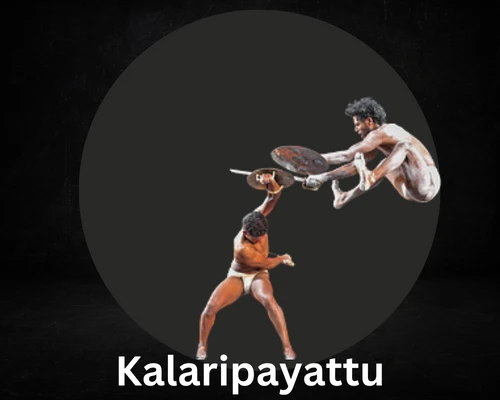
This great martial art practice is done on a special kalari . In Devi Purana , martial arts are described in great detail . Kalaripayattu has a great scientific base .When it’s been practised , it controls our mind , body and soul due to which the body gets more healthy and the lifespan of a person increases .
The trace of the kalaripayattu is found in Atharva Veda and Rigveda in which Marma therapy is mentioned . According to Marma therapy, There are some points in the human body. According to Ayurveda there are 160 Marma points in the human body But according to kalaripayattu there are 48 points . when someone attacks on these Marma Points , it can lead to death . There are two forms of kalaripayattu. One is southern style and the other one is Northern style .
There are many animal poses which are practised in kalaripayattu to make the body much more flexible and stretchable . Like the poses of a peacock, horse, elephant, Lion ,snake, cat and so on .
You may like to read about Lord Parshuram :👇
Lord Parshuram :Fierce incarnation who killed all kshatriyas
Gatka
Gatka originated in Punjab in 326 BC . Gatka is a wooden stick and a leather shield in the left hand . The first step to learn Gatka is through paintra which is done by hand and legs So that the co-ordination between hands and legs can be maintained And can be balanced while using weapons .
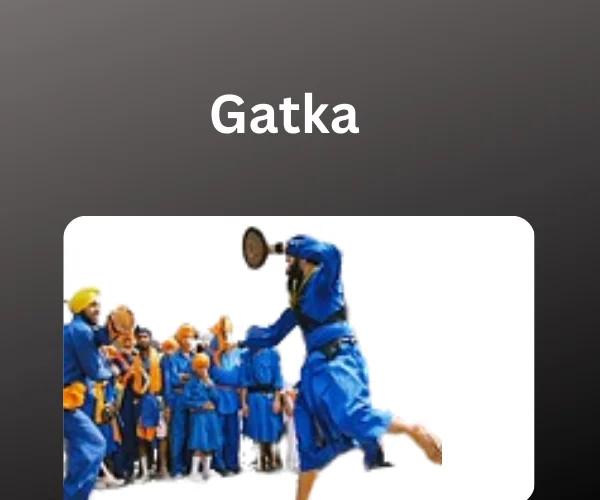
When someone becomes an expert in paintra only then the next upper level training can be given . The first weapon used in gatka is Kirpaan . Other weapons like Goliya , Teg , Neja , Bhala , Pech kavach are also used in gatka . Gatka martial art is one of the main reasons for the victory of Sikh warriors during fighting with the Mughal .
But in the 19th century , gatka martial arts was banned by Britishers . With the help of guns and Rifles , the Britishers won the battle against Ranjit Singh But this victory wasn’t a great victory for Britishers because they were frightened With the gatka martial art form . That’s the reason they banned the gatka martial art .
Silambam
Silambam
Silambam Martial art originated in Tamil nadu . In Tamil Nadu , mountains are called silam and this is how this martial art got the name of silambam .
How your feet should be is the first lesson during learning silambam . and this first lesson is known as Kaladi . Your body should be flexible before learning silambam . That is why this first step is a crucial step being followed by a practitioner .
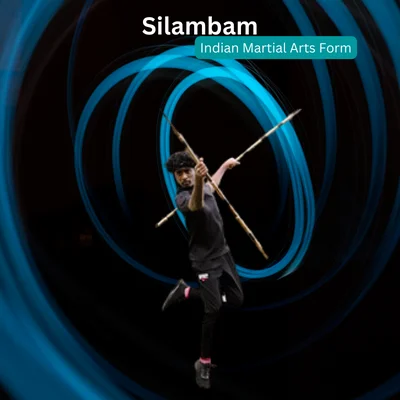
When a Student becomes an expert in Kaladi , he/she proceeds to the next level which is called Kuttuversai .
In this kuttuversai , Students practised through a stick in their hand Which makes the body much more flexible , the consciousness level increases and the overall fitness .
Silambam is based on Different kinds of weapons like : Uttraikam vichu Which is played by using a single stick. The attack and the defence both are done through this single stick. The movement of the stick is very sharp .
Ittraikamvichu in which There is use of two sticks through which a person can attack his/her enemies . With the help of silambam martial art , the Warriors of Bharat had saved it from the British ruler for the longer period .
Vajra Mushti
This Martial art originated in Karnataka traced back to the 5th century . Vajra means hard And Mushti means Fist . It gives a single meaning of thunderbolt fist . It’s hand to hand combat In which they use Knuckle Duster . Vajramushti is a weapon which is made from elephant teeth . This is hard as diamond .
Mujra Musthi is described in Buddharta Sutra . This martial art is also explained in Manosollasa of Someshwara III ( 1126 – 1138 ) . It’s been practised By some specific group of people who are known as Jyesti Malla .
The fighters usually loincloth during practice And have Kumkum on their forehead .
Mardani Khel
This martial art originated in Maharashtra and was inherited by Marathaas . There are a variety of Items used like : laathi- kaahti , Dagger , Bhala , Dandpatta and so on. The grip on the weapon Should be strong only then you can get the victory in Battlefield .
Shivaji was an expert in mardaani Khel . Women were also trained in mardani khel . Rani Lakshmibai bhai , Tarabai were experts in this martial art .
Shivaji Maharaj ruled India in 17 century ( 1646 – 1680 ) . He was known for his expertise in mardani khel . Bagh Nakh is also a weapon used in Mardaani khel . This is the world’s smallest weapon but can take life in a second . Shiva ji killed Afzal khan with the help of this Bagh Nakh . He had also trained his army with this Mardaani khel . He made it mandatory for his army to carry spear and had to bear a shield . And also carry a four feet long Dhop ( weapon of Mardaani khel ) .
This is how Shivaji Maharaj had won multiple battle against mughal .
Mallakhamb
Malkhamb is an ancient martial art Which is practised all over the world for fitness . The word Malkhan came from malla and khamb . Malla means wrestler and khamb means pole . Gymnast perform their yoga posture on this mallakhamb .
There is a wooden pole Which is made from sheesham or Indian Rosewood and before doing the yoga posture the pole is coated with oil so that due to friction no harm happens to the body and can be easily performed the Yoga posture . By this way the gymnast get the massage from the Pole also .
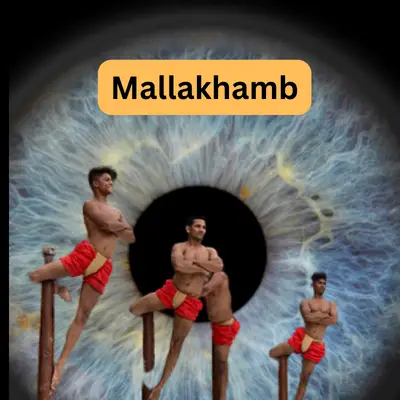
Malkhamb originated in the twelfth century . During the rule of Chalukya Kings a text named “ Manasholhas “ Explain Mallakhamb martial art In detail . But as the Chalukya rule came to an end , mallakhamb also became extinct . It again came into existence when BalamBhatt Dada Deodhar re-introduced it to his Soldiers.
He Used this martial art For the fitness of their soldiers And make them strong .
Related Post which can provide you knowledge about ancient India :
1.Bhaskaracharya : Great mathematician and astronomer of 12th century
2.Takshashila – World’s first most ancient Hindu University
3.Guliga daiva : Kantara stone worshipping powerful tradition
4.Dwarka :excavation of Krishna’s lost city in India
